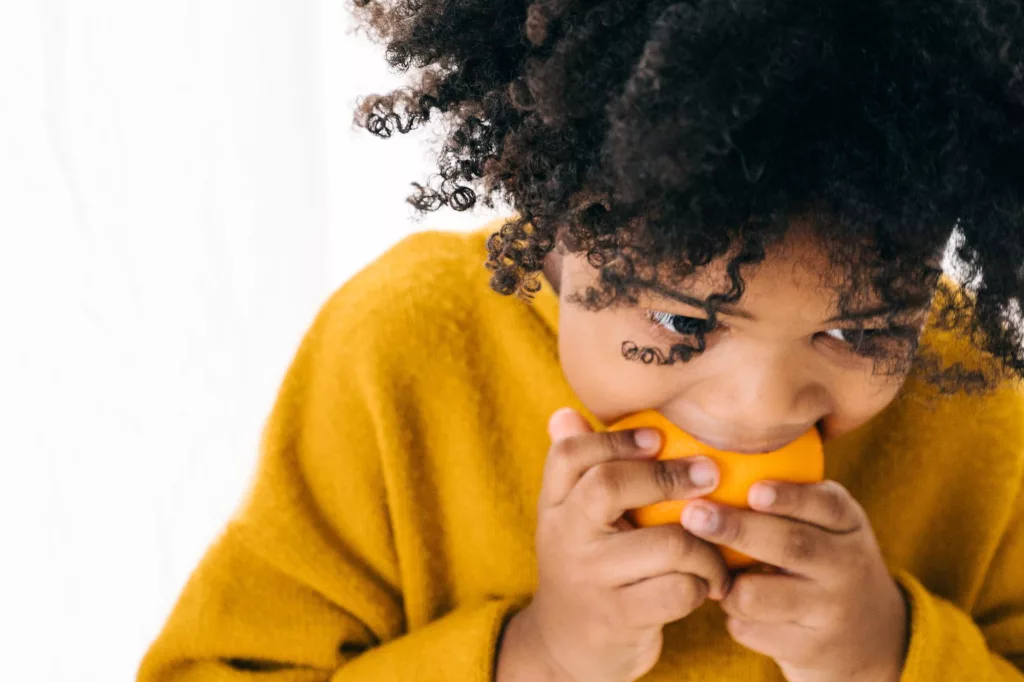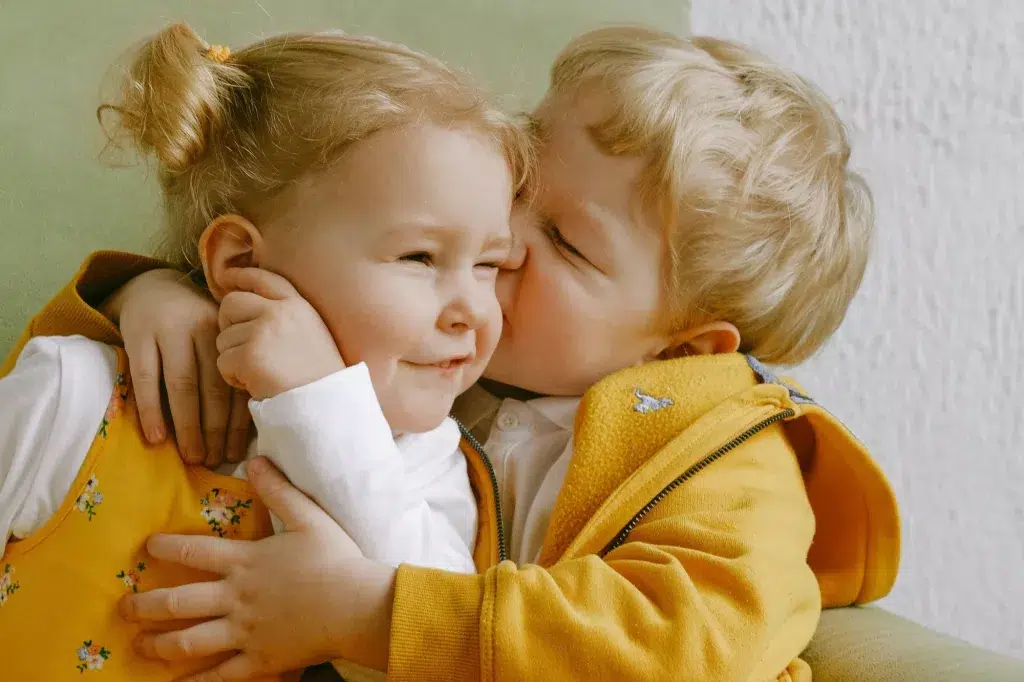Why do girls hold in their feelings and boys let them out? The science and societal norms behind gender differences in how kids express emotions.
By Nicole Fuge, Mama Disrupt® Managing Editor
If you’ve got both girls and boys at home, you’ve probably noticed how differently they handle their emotions.
As a mum to a five-year-old daughter and a three-year-old son, I’ve seen first-hand the different ways my kids express their feelings. It got me wondering if there’s more to this than just societal expectations. Spoiler alert: there is! Let’s explore why and how kids express their emotions in such different ways.
“SAFE SPACES CAN HELP GIRLS FEEL MORE COMFORTABLE LETTING OUT THEIR EMOTIONS AND TEACH BOYS THAT TALKING ABOUT THEIR FEELINGS IS COOL TOO.”
The Science Behind Emotional Expression
Dr. Leonard Sax, a top-notch physician and psychologist, sheds some light on this. He says girls have more serotonin and oxytocin—hormones that help with bonding and staying calm. This means our girls are more likely to bottle up their emotions until they’re somewhere they feel secure, like at home with us.
Boys, on the other hand, have higher levels of testosterone, which can make them more physically expressive and even a bit aggressive. Sax says, boys’ brains are wired to respond quickly to what’s happening around them, so they’re more likely to react on the spot.
Societal Expectations and Emotional Development
But it’s not all biology. Society has a big say too. From the get-go, girls often get nudged towards being sweet and nurturing, which might make them more likely to keep their feelings inside. Boys, however, often get a pass to show their anger or frustration, sometimes even being told to “man up.”
Dr. Lisa Damour, a brilliant psychologist, explains, these societal norms can amplify the natural tendencies we see in boys and girls, leading girls to hold back their emotions and boys to be more outwardly expressive.
Balancing the Scales
Knowing how kids express emotions and understanding these differences can be a game-changer for us as parents. It helps us support our kids better and ensure they don’t fall into those old, restrictive stereotypes. Here are some expert tips for helping our boys and our girls develop healthy emotional habits.
1. Create Safe Spaces
Let your kids know it’s totally okay to express their feelings, whether they’re feeling happy, sad, or anything in between. Safe spaces can help girls feel more comfortable letting out their emotions and teach boys that talking about their feelings is cool too.
2. Model Emotional Expression
Our kids are little sponges, soaking up everything they see. Show them it’s okay to have a range of emotions and how to deal with them in healthy ways.
3. Encourage Emotional Vocabulary
Help your kids put words to their feelings. This is especially great for boys, who might find it easier to show their emotions through actions rather than words.
4. Be Patient and Understanding
Remember, each child is unique. Their way of processing emotions will differ. A little patience and understanding go a long way in helping them develop healthy emotional habits.
How It Shapes Us as Adults
So, let’s talk about how all this science and societal stuff plays out when we’re grown-ups. The mix of brain structure, hormones, and the way we were raised really shapes who we become.
For us ladies, having more serotonin and oxytocin often makes us super empathetic and nurturing. But, it also means we tend to bottle up stress and emotions until we’re in a safe spot.
Guys, on the other hand, with all that testosterone, are usually more physically active and expressive, reacting immediately to whatever’s going on around them.
Society then steps in and turns up the volume on these natural tendencies. Girls are often pushed to be sweet and caring, which can make us put others first and hold back our own needs. Boys are told to be tough and independent, which can make it hard for them to show vulnerability or ask for help.
Fast forward to adulthood, and you’ll see these patterns in action. Women might struggle with setting boundaries and saying no, often juggling a million roles without a peep of complaint. Men might find it tough to open up about their feelings or seek support, leading to stress and emotional health issues.
Being our true selves
Understanding how our biological make-up and societal conditioning work together is a game-changer. It helps us develop healthier, more balanced ways to express our emotions and connect with others. By getting a grip on these dynamics, we can ditch those old stereotypes and support each other in becoming more emotionally savvy. This awareness helps us live more fulfilling lives, where both men and women can be their true, authentic selves.
Sign up to our newsletter for weekly mama goodness delivered straight to your inbox, like the VIP that you are.










